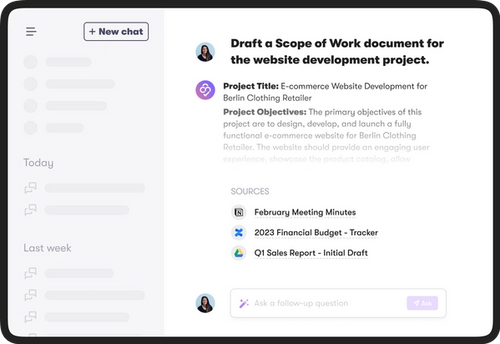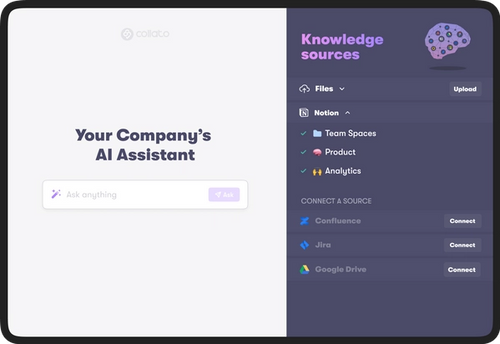How to Navigate Office Politics

Hello Franzi, could you tell us a little about yourself?
Certainly! I'm Franzi, the People and Culture Manager at Collato. My professional background is in social work and mental health coaching, which deeply informs my current role. I'm responsible for navigating human resources, fostering a positive workplace culture, and implementing strategies for effective office management and employee well-being.
How do you navigate office politics?
Navigating office politics effectively requires a deep integration of Collato’s core values, especially humility, honesty, curiosity, and simplicity. These values guide our approach, particularly through micro-interventions – small but strategic actions that lead to significant, positive changes over time.
Firstly, humility is fundamental, advocating for an ego-free work environment. It encourages team members to value each other’s contributions, fostering a culture where admitting mistakes, seeking help, and appreciating others' perspectives are normalized. This approach helps break down hierarchical barriers that often underpin office politics.
Honesty comes next. We promote a culture of transparent communication, where honesty in expressing thoughts and feelings is paramount. This openness is essential in addressing and resolving the misunderstandings and conflicts that often characterize office politics.
Curiosity is also key. We encourage a culture of inquisitiveness, where asking questions and understanding diverse viewpoints are not just accepted but encouraged. This fosters empathy and understanding, critical tools for dismantling the negative aspects of office politics.
Lastly, simplicity in our strategies, such as conducting targeted workshops, facilitating open feedback, and encouraging constructive informal conversations, reflects our commitment to straightforward yet impactful solutions. These micro-interventions, aligned with our values, preemptively address potential issues and foster a culture of transparency, collaboration, and mutual respect, which are essential in navigating the complexities of office politics.
Working with cross-functional teams can be challenging. How do you facilitate effective collaboration in such settings?
Cross-functional teamwork requires a blend of transparency, open communication, and mutual respect. It's vital to encourage a culture where team members feel confident in sharing their ideas and concerns. Promoting honesty in discussions about project timelines and deliverables, and recognizing individual contributions, are key. Additionally, cutting through corporate red tape by keeping teams and meetings lean can significantly improve efficiency and clarity.
What about gossip at work?
Gossip can be a complex one. While it's a natural part of human interaction, in the workplace, it's crucial to differentiate between harmless chatter and harmful rumors. My approach is to foster a culture of open communication and respect. Encouraging direct conversations and addressing issues or misunderstandings promptly can significantly reduce the negative impact of gossip.
How does the organizational structure of a company influence office politics?
Organizational structure can greatly influence the dynamics of office politics. In a hierarchical structure, for instance, there might be more competition for upward mobility, potentially leading to more pronounced office politics. Conversely, in flat organizations, politics might revolve around influence and collaboration since the ladder to climb is not as obvious. Understanding these dynamics is crucial for navigating them effectively. I recommend transparency and clear communication channels, regardless of the structure, to minimize negative politics.
Can emotional intelligence be developed to better navigate office politics?
Absolutely. Emotional intelligence is key to understanding and managing your own emotions and those of others. This understanding can help in navigating complex social dynamics at work. Emotional intelligence can definitely be developed through self-awareness, empathy, and active listening. Regular training and conscious practice in these areas can significantly improve one’s ability to handle office politics skillfully.
What strategies do you recommend for leaders to ensure inclusivity in decision-making, especially in diverse work environments?
Leaders must be proactive in creating an inclusive environment. This includes actively seeking diverse perspectives, ensuring everyone has a voice in meetings, and being aware of unconscious biases. It's also important to establish clear criteria for decision-making that are known and understood by all team members. This transparency helps in making everyone feel valued and heard, reducing the negative aspects of office politics.
How do you address burnout and maintain a healthy work-life balance in a high-pressure environment?
Burnout is a significant issue, especially in high-pressure environments. Addressing it involves both individual and organizational strategies. From an organizational standpoint, it's important to create a culture where taking breaks and vacations is not only accepted but encouraged. On a personal level, setting boundaries, practicing self-care, and finding time for activities outside of work are crucial. Regular check-ins and providing resources for mental health can also help employees manage stress and prevent burnout.
What advice do you have for individuals seeking career advancement in workplaces where office politics are influential?
My advice is to focus on building genuine relationships and delivering consistent, high-quality work. Networking within the company and understanding the informal structure can also be beneficial. However, it's important to engage in politics ethically and positively – focusing on building alliances based on mutual respect and common goals rather than engaging in manipulative tactics.
Finally, how does fostering a transparent and ethical culture influence office politics and employee morale?
Transparency and ethics are the bedrock of a healthy organizational culture. When employees trust that decisions are made ethically and transparently, it reduces the space for negative office politics. It also boosts morale, as employees feel secure in a fair and just work environment. Leaders play a key role here – they must model ethical behavior and ensure transparent processes for decision-making and communication.
Thank you, Franzi.
My pleasure! Remember, a healthy workplace is not about the absence of politics but about navigating them in a way that promotes growth, respect, and collaboration.






